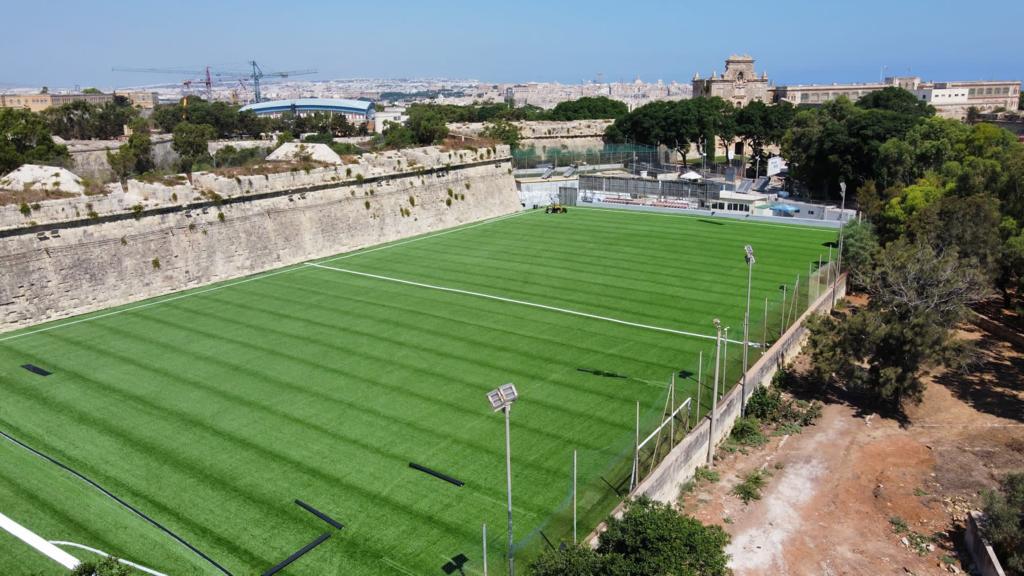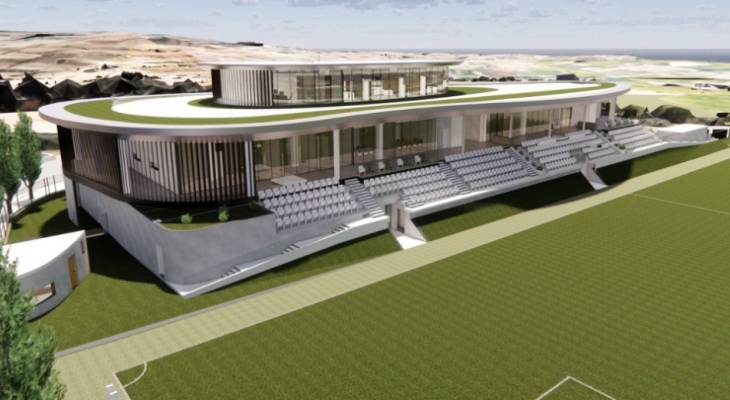Maltese football has witnessed a series of ups and downs in 2022, with impressive performances on the pitch at both club and national team levels being followed by sexual misconduct allegations towards national team coach Devis Mangia.
Amid growing uncertainties surrounding the national team’s coaching staff, Maltese football received some positive news earlier this month, with the men’s national team being drawn against European heavyweights England and Italy in the UEFA Euro 2024 Qualifiers, along with Ukraine and North Macedonia.
Following this, WhosWho.mt reached out to Malta Football Association (MFA) President Bjorn Vassallo, who commented on the draw and signalled that preparations are already underway for the Ta’ Qali National Stadium to be in “optimal condition” for the highly awaited games thanks to investment made in recent years.
“This is a very interesting group to be involved in. Playing against football giants such as Italy and England is always something to look forward to,” Mr Vassallo said. He explained that this draw comes at a time when European football governing body UEFA has confirmed that the All vs All protection for future national team competitions will be retained, which is “great news for small to medium sized countries like ours”. While the UEFA Nations League’s format allows nations to face others that are of similar level, the European Qualifiers leave matchmaking completely open, thus making it “very interesting and appealing for the fans”.
“For our national team, this draw has to be viewed as another experience and opportunity to highlight and consolidate the progress in the level of performance and style of play shown in the last months. Sportingly, it will be a very tough challenge as our four opponents in this group are strong teams, but our team will be prepared for this and hopefully we can make our mark too,” Mr Vassallo added.
However, to produce intriguing matches filled with exciting football, a quality pitch is required. The state of the pitch at the National Stadium has been heavily criticised in recent years, especially last summer with many claiming that it has been overused.
Commenting on this, Mr Vassallo said that the stadium “works wonders and our green keepers are very dedicated and hardworking”, adding that it is important to “keep in mind that this stadium takes 100 matches during a 10-month period, probably making it the busiest in Europe and giving us the opportunity to play all-year round, rain or shine”. He remarked that this is “also thanks to the investment made in recent years” for the installation of the hybrid pitch, which incorporates artificial fibres to support the natural grass to provide better surface stability and increase playing hours.
The state of the pitch’s surface during the summer was “not caused by pitch overload but largely because the reseeding with Bermuda seed did not take place during the regular period due to international commitments and a number of other factors and challenges”, which resulted in a situation that was beyond MFA’s control, Mr Vassallo explained. While it was not aesthetically appealing, “it was in no way dangerous for the players” and football continued to be played like normal.
“A very robust maintenance programme is being followed so that come next summer, the pitch will be available and in optimal condition not only for the domestic competitions, which conclude in May 2023, but also for the Malta versus England qualifier, the UEFA U19 Championship finals in July and the UEFA club competitions in August,” he said.
In addition to this, a number of artificial pitches across Malta and Gozo are being resurfaced, forming part of a €6 million investment programme that is spread over eight years.

Zabbar St Patrick FC football ground, one of the pitches that has been resurfaced as part of the €6 million investment programme / Facebook
Additionally, the MFA recently refurbished the Ta’ Qali Training Grounds and initiated works for the National Football Centre project, a “state-of-the-art complex” that will also include a Category One stadium.
When asked whether the facilities at the National Stadium will undergo similar refurbishments, especially with such notable games set to take place, Mr Vassallo said that they are kept at a “good standard throughout the year”, with stadium improvements “undertaken constantly in both public and restricted areas”. He noted that one has to keep in mind that the stadium was constructed in 1980 and does not offer the same multi-functionality expected of a sporting arena nowadays. However, it is still compliant with all the regulations related to the organisation of such competitions as a Category Four stadium and “conforms with the requisites”.
The North and South stands tend to be open for games that have high attendances, yet their narrow entrances can make for uncomfortable entry into the stadium. Should there be any accessibility issues for the North and South stands, which are not used as frequently as other stands, Mr Vassallo said that MFA’s staff “will surely assist and provide other alternatives in exceptional cases as other wider unrestricted entry and exit points can be made available”.
“Once the National Football Centre project is completed and, in line with our strategy, the MFA will be starting to focus on the next capital project which is the construction of a new football stadium for Maltese football,” he revealed.

National Football Centre project / Website
Due to the qualifying draw’s results, which have prompted highly awaited encounters against both finalists of UEFA Euro 2020 – who are heavily supported by Maltese football enthusiasts – and intriguing fixtures against Ukraine and North Macedonia, large numbers of fans will most likely flock to the stadium regardless of the national team’s performances at that point in time. Such encounters have tended to result in traffic jams in the area surrounding the stadium, yet Mr Vassallo assured that by the time the qualifiers are held in mid-2023, “the ongoing roadworks and embellishments in and around Ta’ Qali should be completed and hence it should become easier to access and exit the arena”.
“This is not the first time that a public venue or facility in the Ta’ Qali zone will host thousands of people. In recent months, sporting and music events were organised in the area and the traffic management was planned in advance with the relevant authorities,” he continued.
He also confirmed that in collaboration with the supporters group of the national teams, South End Core, the MFA will be “looking at all opportunities for fan engagement”, particularly through pre-game fanzones.
“Fanzones provide an extended and memorable fan experience beyond the main event. The Association has organised fanzones and other initiatives in the past and we are looking forward to planning their layout and entertainment features in a way that connects and engages the supporters before and after the matches,” he concluded.
Mr Vassallo was elected MFA President in July 2019, bringing his extensive experience in football administration to the heart of Maltese football. His prior experience includes over two years as Director for Europe at football governing body FIFA and also more than a year as Delegate at UEFA.
Main Image:MFA President Bjorn Vassallo / Website
